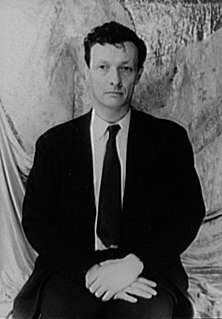A Quote by Travis Kalanick
I wake up in the morning with a list of problems, and I go solve them.
Related Quotes
At the end of the day, I sit down for about five minutes and review all the problems I'm working on, research problems or writing problems, and I go to sleep. Then when I wake up in the morning, I've trained myself to not open my eyes and to just lie there and recall the problems and see if there's anything there.
Teaching and writing, really, they support and nourish each other, and they foster good thinking. Because when you show up in the classroom, you may have on the mantle of authority, but in fact, you're just a writer helping other writers think through their problems. Your experience with the problems you've tried to solve comes into play in how you try to teach them to solve their problems.
If we are demoralized, sad and only complain, we’ll not solve our problems. If we only pray for a solution, we’ll not solve our problems. We need to face them, to deal with them without violence, but with confidence - and never give up. If you adopt a non-violent approach, but are also hesitant within, you’ll not succeed. You have to have confidence and keep up your efforts - in other words, never give up.



































